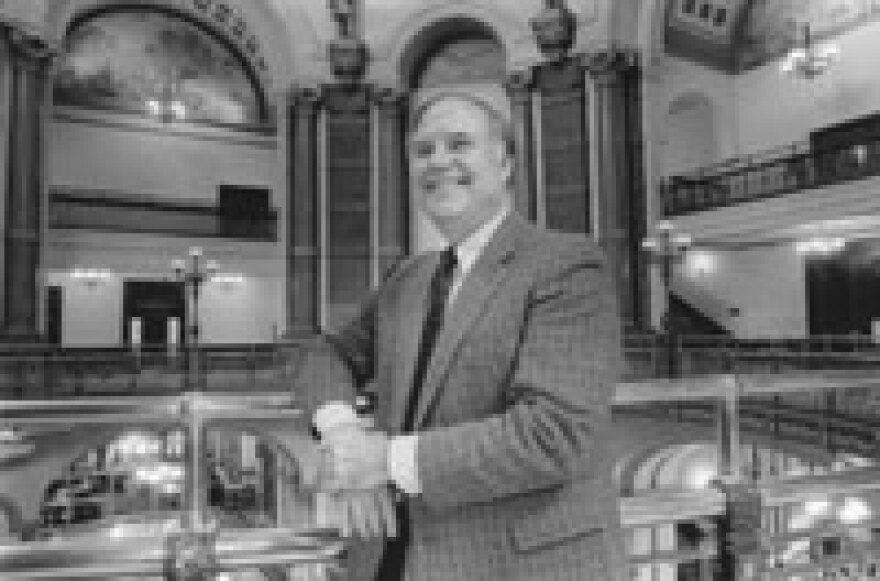State Sen. Carol Ronen says she’s “getting a little impatient,” and who could blame her for being restless?
The Chicago Democrat is the lead sponsor of the so-called “gay rights” bill, legislation that would ban discrimination based on sexual orientation in connection with employment, real estate dealings, access to financial credit and availability of public accommodations.
Despite high hopes for its success in the wake of the Democratic takeover of the Senate in the 2002 election, the measure has been stuck in the Senate Rules Committee for almost a year while skittish lawmakers worry about the potential political fallout in November should they take a principled stand against bigotry.
Ronen would like to see the measure clear the Senate yet this spring, so the House could pass it in the fall, sending it to Gov. Rod Blagojevich for his promised signature. But she’s having a hard time lining up the requisite 30 votes, even though the proposal has the support not only of the Democratic governor but also of state Treasurer Judy Baar Topinka, chairman of the state Republican Party, every other statewide elected official and a host of business, labor, educational and religious groups.
Winning approval for the proposal “should be easier than it is,” Ronen believes. “It’s a simple matter of justice.”
Indeed it is. The proposal should not engender controversy. The legislation merely extends to gay individuals the same freedom from discrimination the state’s Human Rights Act seeks to guarantee for those who might face bias based on race, religion, sex, national origin, age, marital status or several other conditions.
Similar legislation cleared the House three years ago, only to run into unwavering opposition from Senate President James “Pate” Philip of Wood Dale and his Republican majority that caused its sponsor to hold the bill in committee.
Proponents expected a happier fate with the change in Senate control. A Senate committee endorsed the measure some 14 months ago, sending it to the full chamber for consideration. Since that auspicious beginning, though, proponents have been frustrated by a number of roadblocks that eventually forced the bill back into committee without a vote.
Some downstate Democrats got cold feet, concerned that a “yes” vote might not sit well with their more conservative constituents. Many Republicans, meanwhile, criticized the legislation as “special treatment” for gays, even though its first few lines specifically declare that the act requires no preferential treatment or affirmative action based on sexual orientation.
Others contended the measure would condone an immoral lifestyle, an argument that flies in the face of growing scientific evidence that one’s sexual orientation is no more a choice than one’s racial makeup.
Moreover, most of the bill’s critics were only too happy a few years ago to pass legislation intended to protect motorcycle riders from discrimination in public places. One would be hard-pressed to argue that being a biker is less a lifestyle choice than being gay.
Other opponents warned of dire consequences should the measure become law. If discrimination based on sexual orientation were no longer permissible, they argued, churches would have to employ people whose openly gay lifestyles conflicted with their religious beliefs, school officials could not prohibit teachers from cross-dressing and activities such as pedophilia and bestiality would be legitimized.
In fact, the Human Rights Act already allows churches and religious groups to make hiring decisions based on an employee’s religious beliefs. The existing prohibition against gender discrimination, for example, has not forced the Roman Catholic Church to ordain women.
Responding to other misplaced concerns, the measure’s proponents added language to clarify that employers could impose reasonable dress codes and to reassure worry-warts that pedophilia was not a sexual orientation.
The latest red herring threatening to sidetrack the proposal is the absurd contention that the measure somehow would lead to gay marriages. Reading the text should dispel that notion — banning discrimination based on sexual orientation in housing, employment and public places is hardly a green light for same-sex marriages, which, by the way, state law already forbids.
Perhaps the strongest antidote for the apocalyptic fears raised by opponents is the experience of other locales that have chosen to ban gay bias.
Fourteen states, including neighboring Wisconsin, have laws providing civil rights protections to gays, without any apparent calamitous effects. Even closer to home, at least 15 Illinois cities and Cook County have laws banning discrimination based on sexual orientation.
And what may come as a surprise to some timorous downstate lawmakers, the towns aren’t all up north. Springfield, for example, enacted a ban on gay discrimination more than a year ago, and so far the Capital City has not become Sodom on the Sangamon. So has Decatur, hardly a hotbed of social radicalism. Indeed, the most recent Illinois city to adopt a gay rights ordinance is Peoria, quintessential Middle America.
Opinion polls consistently indicate public support for measures to protect gays from discrimination in employment, housing and public accommodations. “People in general support the idea,” Ronen notes. “It’s time the legislature caught up with the general public.”
The senator is correct. Wobbly-kneed lawmakers in both parties should find the courage to reject discrimination based on sexual orientation. It’s a simple matter of equal rights for all Illinoisans, a concept long overdue.
Charles N. Wheeler III is director of the Public Affairs Reporting program at the University of Illinois at Springfield.
Illinois Issues, April 2004






